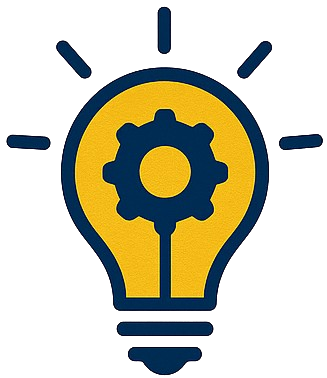Introduction
In today’s fast-paced academic environment, mastering effective study techniques and productivity tips has become essential for student success. Whether you’re a high school student preparing for exams or a college student managing multiple courses, the right study methods can dramatically improve your learning outcomes and academic performance.
Research shows that students who implement proven study techniques consistently outperform those who rely on traditional cramming methods. This comprehensive guide explores the most effective study methods and productivity strategies that will help you study smarter, not harder, in 2025.
How to Build a Professional Portfolio: Complete Career Advice Guide
The Science Behind Effective Study Techniques
Understanding how your brain processes and retains information is crucial for developing productive study habits. Modern neuroscience reveals that active recall and spaced repetition are among the most powerful study techniques for long-term retention.
How Memory Works During Learning
Your brain forms neural pathways when you learn new information. The stronger these pathways become through repetition and active engagement, the better you’ll remember the material. This is why passive reading is less effective than active study methods that challenge your brain to retrieve information.
Top 10 Study Techniques That Actually Work
1. The Pomodoro Technique for Enhanced Focus
This time management method involves:
- Study for 25 minutes with complete focus
- Take a 5-minute break
- Repeat for 4 cycles, then take a longer 15-30 minute break
Taking regular breaks during study sessions prevents mental fatigue and maintains high levels of concentration.
2. Active Recall: Test Yourself Regularly
Instead of simply re-reading notes:
- Close your books and try to recall key concepts
- Use flashcards for quick self-testing
- Explain concepts aloud as if teaching someone else
- Quiz yourself using flashcards or ask study partners to test your knowledge
3. Spaced Repetition for Long-term Retention
This study technique involves:
- Review material at increasing intervals (1 day, 3 days, 1 week, 2 weeks)
- Use spaced repetition apps like Anki or Quizlet
- Schedule review sessions in your study calendar
4. The Feynman Technique: Teach to Learn
Named after physicist Richard Feynman, this method includes:
- Choose a concept to learn
- Explain it in simple terms as if teaching a child
- Identify gaps in your understanding
- Go back to source material and simplify further
5. Mind Mapping for Visual Learning
Create visual representations of information:
- Start with a central topic in the middle
- Branch out with related subtopics
- Use colors and images to enhance memory
- Connect related concepts with lines
Language Learning Tips: Expert Strategies for Mastering Any Language Fast
6. Cornell Note-Taking System
Divide your page into three sections:
- Notes Section (right): Main lecture or reading notes
- Cue Section (left): Questions and keywords
- Summary Section (bottom): Key takeaways
7. Practice Testing Under Exam Conditions
Simulate real exam environments by:
- Timing yourself during practice tests
- Removing all distractions
- Using actual exam materials when available
- Reviewing mistakes thoroughly
8. Interleaving: Mix Different Topics
Instead of studying one subject for hours:
- Alternate between different subjects or topics
- Mix problem types within the same subject
- This improves discrimination and transfer skills
9. Elaborative Interrogation
Ask yourself “why” and “how” questions:
- Why is this concept important?
- How does this relate to what I already know?
- What are the implications of this information?
10. Distributed Practice Over Time
Break large tasks into manageable chunks and spread learning over multiple sessions rather than cramming.
How to Learn New Skills Online: Complete Guide to Online Learning Success
Productivity Tips for Maximum Study Efficiency
Create an Optimal Study Environment
Physical Space Setup:
- Choose a quiet, well-lit area
- Keep your study space organized and clutter-free
- Use ergonomic furniture to prevent fatigue
- Maintain comfortable temperature (68-72°F)
Digital Environment:
- Use website blockers during study time
- Keep your phone in another room
- Use noise-canceling headphones if needed
- Have all necessary materials within reach
Time Management Strategies for Students
Effective organization and time management are keys to academic success. Here are proven time management techniques:
Weekly and Daily Planning
- Sunday Planning: Review the upcoming week and set priorities
- Daily To-Do Lists: Write down 3-5 most important tasks
- Time Blocking: Assign specific time slots to different subjects
- Buffer Time: Include extra time for unexpected delays
Priority Matrix for Academic Tasks
| Urgent & Important | Important, Not Urgent |
|---|---|
| Exams due tomorrow | Long-term projects |
| Assignment deadlines | Reading assignments |
Sleep Hygiene & Tips for Better Sleep: Your Complete Guide to Quality Rest
| Urgent, Not Important | Neither Urgent nor Important |
|---|---|
| Responding to non-critical emails | Social media scrolling |
| Minor administrative tasks | Excessive socializing |
Energy Management Throughout the Day
Peak Performance Hours:
- Identify when you’re most alert (usually morning for most people)
- Schedule challenging subjects during peak hours
- Use low-energy times for review and organizational tasks
Maintaining Energy Levels:
- Stay hydrated (aim for 8-10 glasses of water daily)
- Eat brain-healthy foods (nuts, berries, fish, dark chocolate)
- Get 7-9 hours of quality sleep
- Exercise regularly to improve cognitive function
Study Habits That Boost Academic Productivity
Morning Routine for Success
- Wake up at a consistent time (even on weekends)
- Exercise or stretch for 10-15 minutes
- Eat a protein-rich breakfast
- Review your daily goals
- Start with your most challenging subject
Evening Review and Preparation
- Review the day’s learning for 10 minutes
- Prepare materials for the next day
- Plan tomorrow’s priorities
- Practice gratitude for small wins
- Maintain a consistent bedtime
Weekly Study Habits Assessment
Track these metrics weekly:
- Hours studied per subject
- Number of practice problems completed
- Concepts mastered vs. concepts needing review
- Sleep quality and energy levels
- Overall satisfaction with progress
Stress Management Techniques: 12 Proven Methods to Reduce Anxiety
Technology Tools for Enhanced Study Productivity
Essential Study Apps
- Notion or Obsidian: For comprehensive note-taking and organization
- Forest or Freedom: To block distracting websites
- Anki or Quizlet: For spaced repetition flashcards
- Google Calendar: For scheduling and time blocking
- Grammarly: For writing assistance and proofreading
Digital Study Techniques
- Create digital flashcards with audio for language learning
- Use online practice tests for immediate feedback
- Join virtual study groups for accountability
- Record yourself explaining concepts for later review
Overcoming Common Study Challenges
Dealing with Procrastination
The most effective way to overcome procrastination is breaking large tasks into smaller, manageable steps.
Anti-Procrastination Strategies:
- Use the “2-minute rule” (if it takes less than 2 minutes, do it now)
- Start with the easiest part of a task to build momentum
- Set artificial deadlines before real ones
- Reward yourself for completing difficult tasks
Managing Study Burnout
Warning Signs:
- Constant fatigue despite adequate sleep
- Inability to concentrate for normal periods
- Feeling overwhelmed by routine tasks
- Loss of motivation or interest in studies
Recovery Strategies:
- Take a complete rest day every week
- Engage in non-academic hobbies
- Spend time in nature or exercise outdoors
- Talk to counselors or trusted friends about stress
Handling Exam Anxiety
Pre-Exam Preparation:
- Practice deep breathing exercises
- Visualize successful exam performance
- Maintain regular sleep schedule before exams
- Avoid cramming the night before
During Exams:
- Read all instructions carefully
- Start with questions you’re confident about
- Manage time by checking the clock regularly
- Use positive self-talk to stay calm
Retirement Planning Basics: Your Complete Guide to Financial Freedom
Measuring Your Study Progress
Key Performance Indicators (KPIs)
Track these metrics to measure improvement:
- Grade Point Average (GPA) trends over time
- Time spent studying vs. grades achieved ratio
- Number of concepts mastered per study session
- Retention rate in practice tests over time
- Stress levels on a 1-10 scale during study periods
Weekly and Monthly Reviews
Conduct regular assessments of your study techniques:
- Which methods worked best for different subjects?
- Where did you waste the most time?
- What environmental factors helped or hindered focus?
- How can you optimize your approach for the next period?
Frequently Asked Questions
What are the most effective study techniques for different learning styles?
For visual learners: Use mind maps, diagrams, color-coded notes, and charts. Create visual summaries of complex information and use highlighters strategically. For auditory learners: Record lectures, read notes aloud, join study groups, and use rhymes or songs to remember information. For kinesthetic learners: Take notes by hand, use flashcards, walk while studying, and create physical models of concepts when possible.
How can I improve my productivity while studying from home?
Create a dedicated study space separate from relaxation areas, establish a consistent daily routine, and use time-blocking techniques to structure your day. Practicing mindfulness and meditation can help you stay present and manage anxiety while studying from home. Remove distractions by keeping your phone in another room and using website blockers during study sessions.
What’s the optimal study schedule for maximum retention and productivity?
The ideal study schedule incorporates spaced repetition, with initial learning followed by reviews at 1 day, 3 days, 1 week, and 2 weeks intervals. Study your most challenging subjects during peak energy hours (typically mornings), and use the Pomodoro Technique with 25-minute focused sessions followed by 5-minute breaks. Plan for 6-8 hours of study time per day for intensive periods, with adequate breaks and a full rest day weekly.
5 Easy One-Pot Recipes for Quick Dinners
Take Action: Transform Your Study Habits Today
Implementing effective study techniques and productivity tips requires consistent practice and patience. Start by choosing 2-3 techniques from this guide that resonate with your learning style and current challenges.
Ready to supercharge your academic performance? Discover premium study tools, planners, and productivity resources that successful students use to achieve their goals.
Desk accessories & ergonomic chairs :
Conclusion
Mastering effective study techniques and implementing proven productivity tips can transform your academic journey from stressful cramming to efficient, enjoyable learning. The key is consistency—choose the methods that work best for your learning style and stick with them long enough to see results.
Remember that developing strong study habits is an investment in your future success, both academically and professionally. Start implementing these study techniques today, track your progress, and adjust your approach based on what works best for you. With dedication and the right strategies, you can achieve academic excellence while maintaining a healthy work-life balance.










